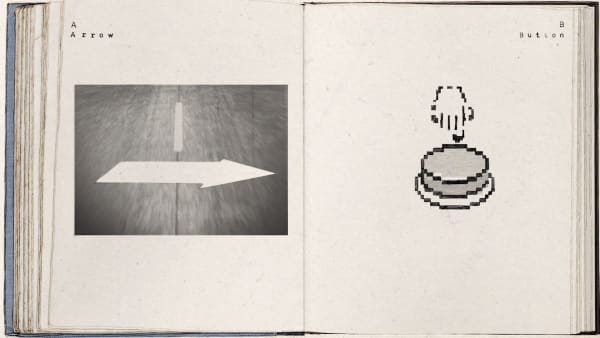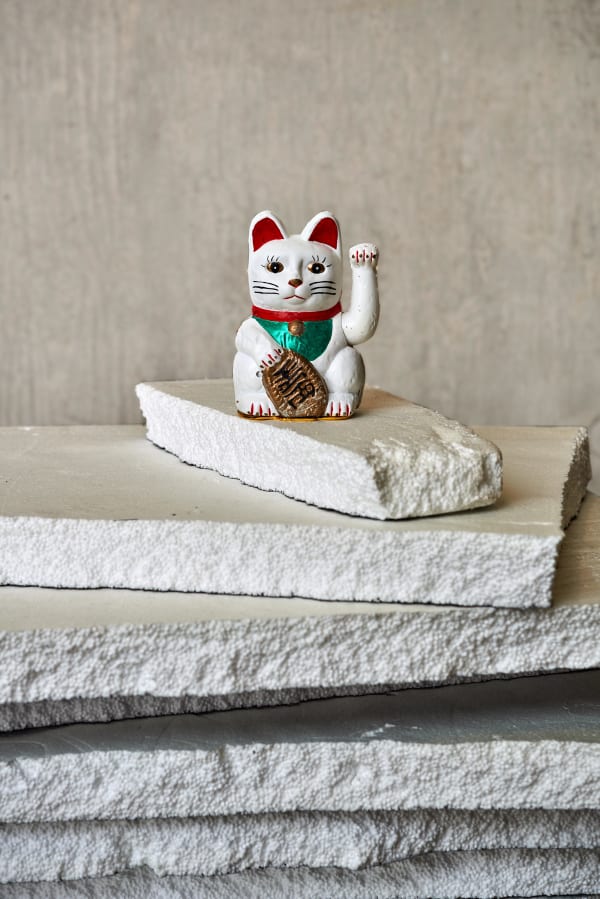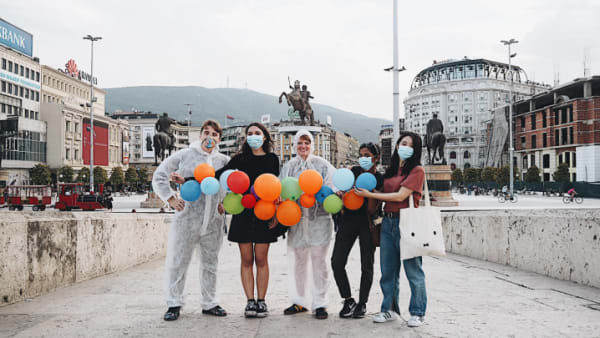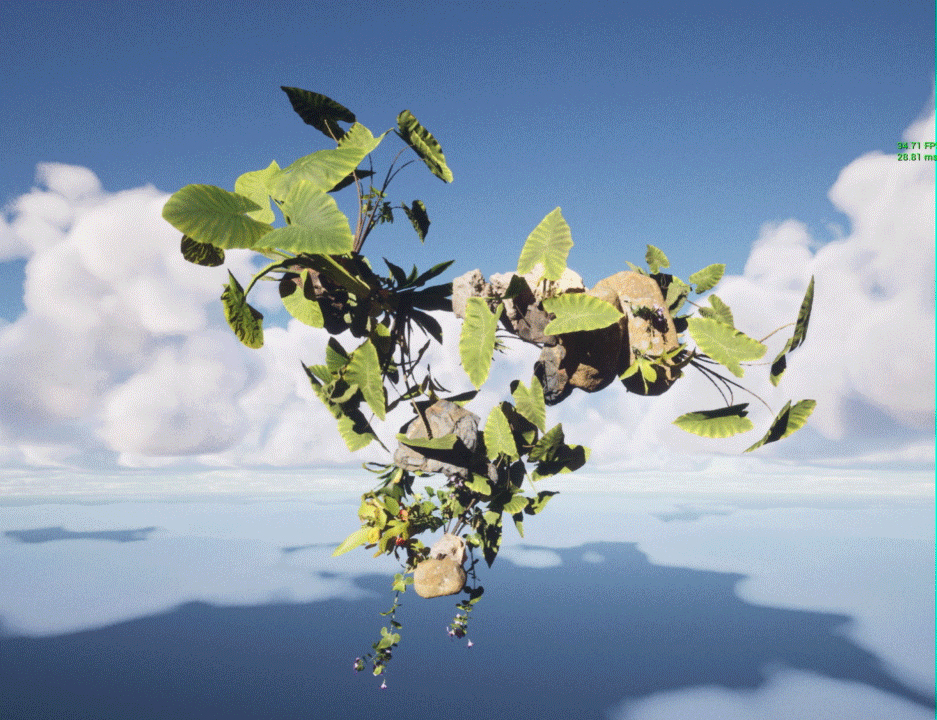As the climate emergency emphasises the dysfunction inherent in our relationship with nature, we take a look at graduating work – from a biocomputer to a gull costume – that gives nature a voice.
Sean T Ross spent lockdown building a biocomputer in his front yard. The MA Material Futures graduate began the project wanting to demystify technology and following a few twists and turns he ended up constructing a machine that shares Earth’s first words.
It all began with the idea of revealing the workings of digital devices so consumers truly understand what they’re using daily. Soon Ross was experimenting with ways to introduce biology into these mechanisms:
“The project became about balance. There’s the realm of nature and the realm of the artificial and all our digital technology exists in the artificial realm where we have complete autonomy. But, there’s this natural area in which we don’t control, but it’s what we should be aspiring to. I’m working in a small crossover where nature is not too wild and untameable but then the artificial is not too detrimental. It’s striking that balance.”
Working with Professor Ioannis Ieropoulos at UWE, Ross began building microbial fuel cells using geobacter and exploring the possibility of using bioluminescence as biological pixels. When lockdown happened, he was disconnected from the College’s Grow Lab and its equipment. The project had to change, and in response it took on a poetic perspective.
Still looking to rewire our relationship with technology, Ross built a biocomputer, a biological beacon to transmit and translate nature’s first words. For his beacon, the energy comes from geobacter bacteria in river mud that secrets electrons as part of its cellular respiration. It needs regular feeding and care but provides the energy to transmit a signal defined by the circadian movement of the leaves of Calathea plants. That binary code is picked up by the receptor and translated into words.
So, what is the earth’s first word? That’s a reveal that Ross is preparing to share, but the question is… does it matter? “This project is about nature having a voice,” says Ross, “it doesn’t have to be sensible to us.”
In this project, the medium is the message and by giving nature a voice, Ross is advocating for it. The project is poetic rather than practical – we won’t be building microbial fuel cells in our yards anytime soon – but Ross has delivered a provocation that technology can be different.
“We should be trying to preserve nature but also continuing to make progress. I’m not a luddite, I don’t want technological advancement to stop, but I just think it needs to be reassessed.”
While Ross is keen to demystify technology, Luis Gutierrez Rico, MA Graphic Communication Design, is looking to demystify nature itself. Plant Eden is an interactive experience that asks the viewer to play with a digital representation of nature. Users are invited to alter four parameters – harmony, beauty, goodness and grace. A hyperreal choreography of foliage and rocks responds to the user’s decisions while floating in blue sky. Actions always have an impact but not perhaps in way you expect, they are different every time. “The algorithm is going to fight you or work with you, but you won’t be able to tell because it’s always changing,” explains Gutierrez. You can never manipulate the system to your own ends, nature always wins.
As the name suggests, Plant Eden looks idyllic and alluring, but deception is part of the point. In a previous life studying architecture, Gutierrez became interested in our understanding, or perhaps misunderstanding, of nature.
“The way nature is portrayed, it’s like a magical beautiful thing. The idea that nature is always good is used to sell a lot of products. We see it so narrowly and idealised.”
The mechanism at play in Plant Eden exposes that we cannot comprehend nature’s complexities. “Is it complex and difficult to grasp? Yes,” says Gutierrez, “But we ascribe it intelligence, like a god. There must be something behind it. But really it's simple rules that have applied over millions of years.”
Plant Eden’s rules are logical and yet unknowable, encouraging the user to accept that they will never be omniscient. Understanding this broader perspective can inform and change behaviour, says Gutierrez. You can tell someone they should recycle but surely it's better if they develop an empathy and acceptance of nature which could then inform every aspect of their behaviour?

Empathy sits at the heart of Dino Shi-Yong Zhao’s MA Narrative Environments project but at a more personal level. Set in the Woodberry Wetlands in north London, A Little Bird Told Me is a nature tour that invites people to experience how herring gulls survive in the city. The self-guided tour comes complete with costume, goggles, headset and map. Visitors, dressed as gulls, tour the wetlands listening to life of the gull:
‘Are you new to this area? Your accent sound like you’re from Canvey Island, I heard life is a struggle there. I don’t know why anyone would want to settle down there. It’s really ironic that we settle down far away from our original home but you’ll find life is much better here: no predators, sufficient food. Life seems easier. We just have to speak longer because the city is super-noisy. Anyway, welcome to the Wetlands.”
Sean T Ross and Dino Shi-Yong Zhao are both nominated for this year's MullenLowe NOVA Awards. Explore the full list of nominees.
More:
-

Xiaoying Liang
-

Katie May Boyd
-

'Dyskopje' - Skopje Field Trip project


